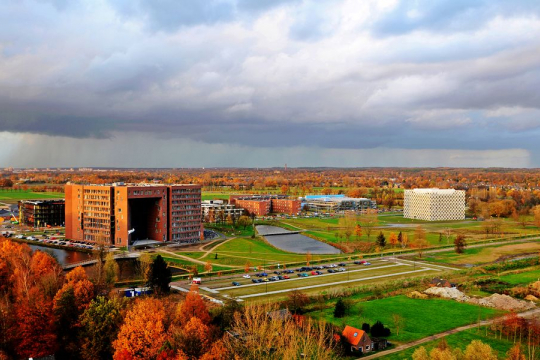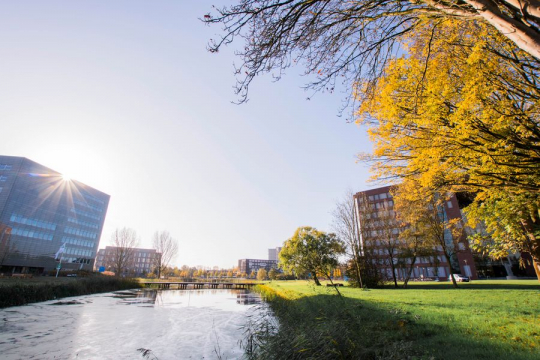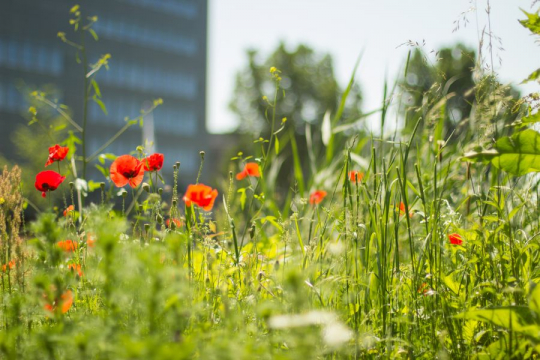The EfD partner center will be based at Environmental Economics and Natural Resources Group (ENR). Our application incorporates scientific staff from Section Economics, as well as senior expertise from Wageningen Economic Research (WEcR).
The Environmental Economics and Natural Resource (ENR) Group at Wageningen University and Research (WUR) is part of the Section Economics of the Department of Social Sciences. We are a team of environmental and natural resource economists working at the interphase between environmental and development issues, with a strong inter and transdisciplinary focus. The goal of the ENR Group is to contribute to the construction of a sustainable and circular economy, as well as low-carbon, climate-resilient socio-ecological systems. We apply the concepts and principles of environmental and natural resource economics to the construction of circular, low-carbon and climate-resilient production and consumption systems.
Societal relevance
Our team (ENR/Section Economics/WEcR) strives to be societally and academically relevant, which, for the purpose of this proposal, entails:
- Ensuring that our work is based on a solid understanding of societal problems and their stakeholders;
- Contributing to solving those problems through high-quality research from our own comparative strengths (as a team and as individuals);
- Placing ourselves within a continuum that moves between theoretical and applied work, allowing for individual differences and the team's comparative strengths;
- Building long-term partnerships and co-creative solutions that allow us to actively conduct transdisciplinary and interdisciplinary research;
- Prioritizing education and the formation of new generations of problem solvers;
- Actively seeking opportunities to communicate with various audiences by using relevant communication strategies for each stakeholder segment, and by being called in as experts, or volunteering as such if the opportunity arises.
Education
Wageningen University prides itself on "science for impact". Research and education at Wageningen University aim to solve real-world problems in the life sciences. Wageningen students are, in general, interested in knowledge and skills that enable them to address real-world problems. In terms of education (course curriculums, thesis supervision, and internships) our team (ENR Group/Section Economics/WEcR) aims to:
- Offer students in interdisciplinary programs an understanding of key economic concepts and theories, and command of research methods relevant to their study program at a level that allows them to integrate economic knowledge with other disciplines;
- Offer economics students more in-depth training in advanced economic theory and research methods;
- Prepare students for a scientific or professional career in environmental and resource economics, and;
- Cover the themes in environmental, natural resource, and development economics that are currently of high societal relevance;
- Train students to adopt values of scientific integrity, and to reflect regularly on their own performance, assumptions, and values.
Finding answers together
At Wageningen Economic Research we work with companies, governments, NGOs, and producer organizations, as making change happen lies within their direct sphere of influence. By supporting their policy design and implementation processes, we enable such partners to achieve their and our desired impacts. Such impacts can be achieved directly by supporting the design of field-level interventions or, more indirectly, by publishing our findings to inform and inspire a wide group of stakeholders. We choose whom to work with based on the potential to achieve impact (at scale) in combination with funding availability that enables us to deliver effective support based on high-quality research.
Strong anchoring in a unique organization
Wageningen University & Research is a collaboration between Wageningen University and the Wageningen Research foundation. The strength of Wageningen University & Research lies in its ability to join the forces of specialized research institutes and the university. It also lies in the combined efforts of the various fields of natural and social sciences. This union of expertise leads to scientific breakthroughs that can quickly be put into practice and incorporated into education.
Organization for collaboration
The EfD partner center will be based at Environmental Economics and Natural Resources Group (ENR). ENR will be the contact institution for WUR within the EfD network with Francisco Alpízar as the main contact person. Other key contact persons include Erwin Bulte (chair of Section Economics) and María A. Naranjo (Wageningen Economic Research).


